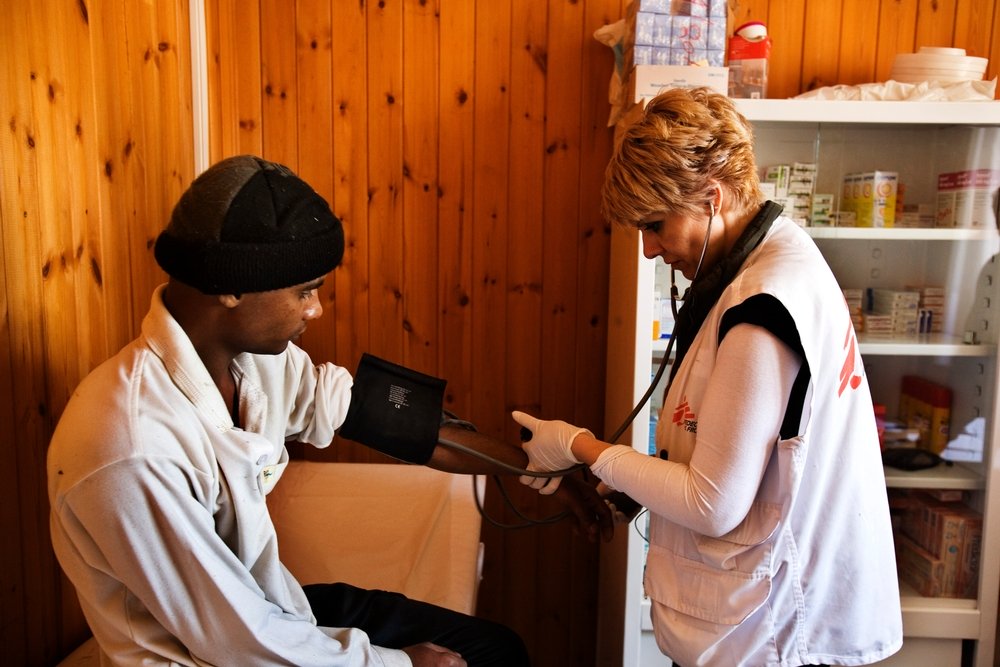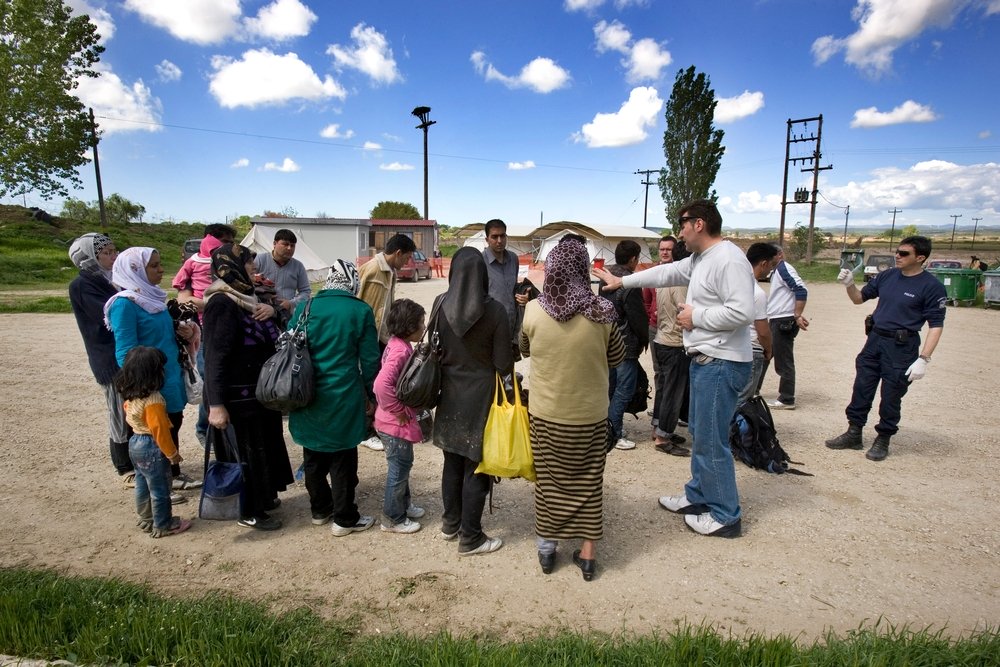
Greece- Doctors Without Borders screenings and scaremongering about ‘ticking time bombs for public health’. It can be effectively safeguarded and promoted as long as the populations most in need have access to healthcare services and to effective public healthcare programs. It is promoted only when the medical needs of all social groups are met -people lacking health insurance, children, elderly, chronic patients regardless of their origin-, especially today that thousands of households are living in destitution and the public healthcare system is in extreme stress due to horizontal budget cuts”, said the General Director of the MSF Greek Section, Reveka Papadopoulou. “The involvement of public health care actors in police checks is contrary to medical ethics and dangerous as well”, she added.
Such operations can only spread fear among the population groups they target, and therefore compel them to “go in hiding” preventing them actually from reaching healthcare services in search of medical aid when needed. At the same time, the participation of health professionals in police “sweep” operations arouses serious ethical issues, according to the code of medical ethics.

The amendment of the Greek Presidential Decree 114/2010, included in the law governing “Electronic communications, Transports and Public Works Regulations and other decrees” introduced on April 9, day of dissolution of the parliament and announcement of the national elections, foresees «mandatory health screenings of persons who suffer from communicable diseases or belong to groups vulnerable to communicable diseases and their detention in health structures defining these persons as a ‘danger to public health’. According to this specific legislation “the risk is perceived among persons who suffer from communicable diseases or belong to population groups vulnerable to communicable diseases, mainly due to their country of origin or the use of intravenous illegal substances, or the fact that she/he is a sex worker…, or due to his/her living conditions that do not abide to basic rules of hygiene”.
The article specifies “mandatory health screenings” whereas in Greece migrants who lack documentation have access to the healthcare system only in “emergency cases and until the stabilisation of their health is achieved” according to the law (Article 84/Ν.3386/2005).
Public health is an issue of state responsibility. However, by this specific legislation the government not only fails to assume its responsibilities but it also turns the “victim” into a “perpetrator”, as seen in the case of detention centres. According to medical data from MSF interventions in detention facilities in Evros during 2011, over 60% of the medical problems of detained are due to or directly related to their substandard living (detention) conditions. This was also duly noted by the European Center for Disease Control and Prevention and the World Health Organisation, which found migrants’ detention centres inappropriate for human habitation.
The Greek authorities in charge have so far failed to respond to public health care needs through integrated programs. MSF calls upon the relevant authorities to safeguard unhindered access to the healthcare system for the populations in need, which cannot be achieved by carrying mandatory medical screenings in a context of police “sweep” operations.
Find out more about MSF's work in Greece.
Related content